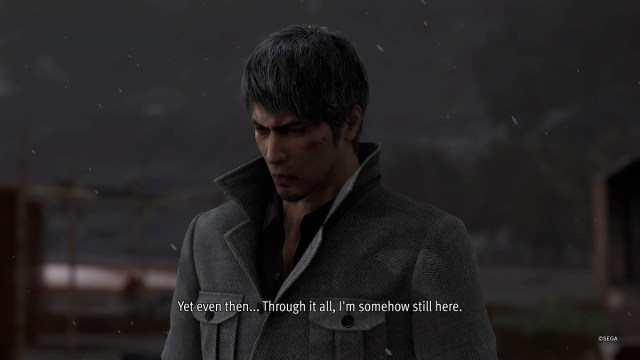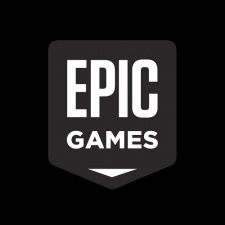Like a Dragon: Infinite Wealth on PS5
As a long-time Yakuza fan, I will admit I could never quite get into the previous Ichiban game. It spun the Yakuza format into something shockingly new, and I didn’t quite mesh with it. It felt too rigid when I would have preferred just to hammer the square button and decimate whatever enemy Kiryu was facing. Fortunately, Infinite Wealth has made definite improvements to the turn-based combat from the last game, and I found myself enjoying it much more this time around.
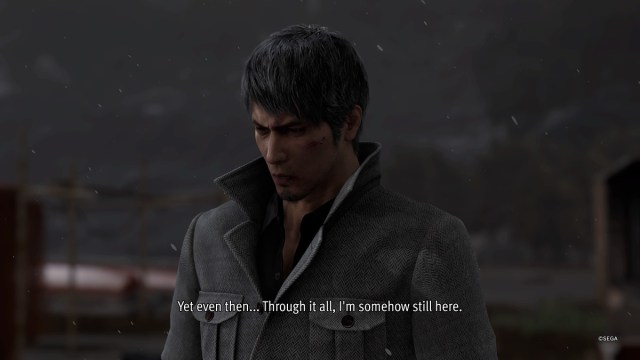
Like a Dragon: Infinite Wealth takes place four years after the events of Ichiban’s first adventure, with the fallout from the Great Dissolution still very fresh. Ichiban actually has a job with Hello Work to help the displaced Yakuza find gainful employment and new meaning to their lives. However, a nasty rumor spreads, which misrepresents what he is trying to do, and Ichiban finds himself out of a job. Though this means he can no longer help his Yakuza brethren, it frees him up to take on a different task.
Summoned by his previous captain, Sawashiro, Ichiban is tasked with finding a woman who has a connection to himself and his late family patriarch. This quest takes Ichiban (and the series) out of Japan for the first time, into the island paradise of Hawaii. From here, it’s the traditional Yakuza/Like a Dragon story you might expect, full of betrayal, unexpected allies, and plenty of fistfights. I will say that while it hits plenty of familiar notes, I was still glued to the story from beginning to end, like a terrific soap opera.
One of the most shocking parts of the new location is that, obviously, it follows a different currency, so upon arriving, your earned Yen shifts to USD. I have to say, putting money gained from fights into context entirely changed how I spent what I earned. Throughout the earlier Hawaii sections, I found myself money-conscious for the first time in this series. It’s also pretty funny to win a fight only to get around $5, and that had me chuckling for a bit.
Having this perspective meant so much more when I was holding only $50, and a health item I needed was pretty expensive. For this reason, I never shied away from a single fight, as it was a good while until I felt like I had a comfortable wealth, but it never once felt infinite. I was grateful to the side content for additional ways to make a little extra dough.
Speaking of fights, the best change done to combat is that you actually get to move and position your party members, lending a bit of strategy to every fight. Between two character combo attacks and special attacks with a specific attack area, it makes each fight feel like much more than just tapping the same buttons until victory. I would call this the singularly most important advancement from the previous game to this one, and it’s probably why I was able to dive right in and enjoy myself.
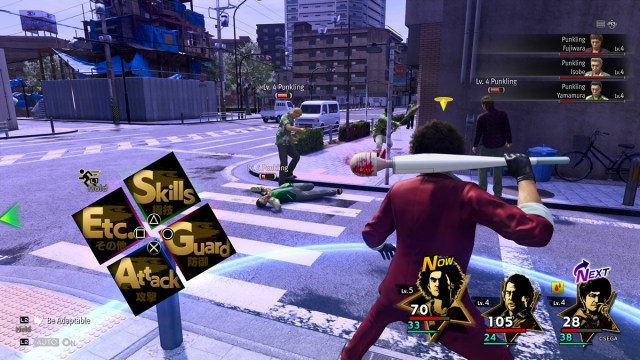
Not that this means anything to anyone but me, but as the setting shifted to America, it meant the names of enemies changed. Getting to defeat an enemy that had my name in a Yakuza game is most certainly a highlight of my life. The screenshot I took of the first time I saw my name is my new trophy.
There is also a new slate of Jobs to uncover for Ichiban and the gang. This made it nice and easy to find the groove with the party, and it was easy to switch out. There were several characters that I felt were far better as their default jobs versus new ones. I was happy to find that I never felt penalized for this lack of experimentation.
As far as side content goes, there’s no doubt in my mind that this is the biggest Yakuza/Like a Dragon game yet. The game lets you fully explore three separate maps, each with the usual arcades, gambling, and shops. I was incredibly surprised when the latter half of the story introduced the third map, as I hadn’t expected it to be an option.
Ichiban also ends up once again being involved with finding Sujiimon. The wrinkle this time is that they are used in a Pokemon-esque way where you can add them to your roster and fight them to fight the “Discreet Four.” As the obtainable Sujimon are just regular enemies, you have further reasons to engage in every fight available. There is also a related gacha to soak up any of Ichiban’s hard-earned money at $100/roll on the most basic tier.
For an added adventure, Ichiban ends up on Dondoko Island, where a resort is under siege by pirates who are using the island to dump their trash. Restoring the resort means crafting lots of random items to improve the resort’s popularity to meet requirements to restore its former glory. This management sim is more robust than I expected and gives you free rein to place all sorts of wacky props in designated areas.
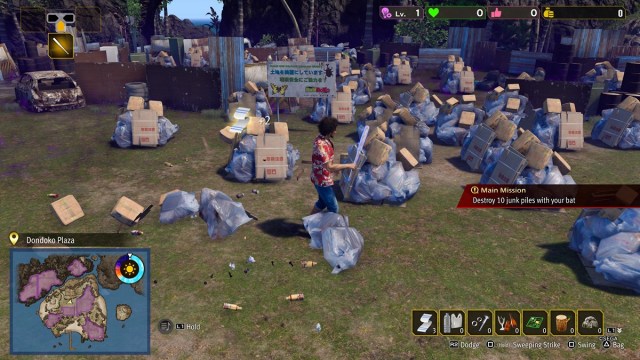
These are just some of the Ichiban options, as well, as the story also focuses on the series hero, Kazuma Kiryu. Though it feels a little unnatural to be controlling Kiryu in turn-based, his place in the game is a very important one. Infinite Wealth feels like a love letter to fans who have journeyed with Kiryu from the beginning, as a whole section of the game has you running through areas finding spots for him to reminisce on memories fans will recall.
The coolest thing is that these aren’t any memories from the mainline titles either, as there are mentions of spin-offs Ishin, Kenzan, and Dead Souls, all of which Kiryu remarks on as dreams he had. While I was willing to skip over some other content, I made a beeline for all of these as they were a welcomed trip down memory lane and reignited my desire to revisit the older titles.
My only slight annoyance with the story was that it took forever to acknowledge any part of The Man Who Erased His Name. In that game, Kiryu was very strict with his alias, but everyone in Infinite Wealth just threw it around. While the argument could be made that there was less risk in Hawaii, it still felt too disconnected from a game that was supposed to bridge the story.
I can’t exactly sell Infinite Wealth as an easily accessible JRPG for anyone to enjoy. It’s a dense game with at least a 100-hour adventure for players to undertake. However, if you’re willing to brave the time commitment, there’s an amazing story here that feels like the most fitting wrap-up for anyone who has loved Kazuma Kiryu throughout the series. I don’t know where a possible ninth game might take the series, but getting here has been an incredible experience.
Pros
Terrific (and expected) Yakuza soap opera-esque story.
The game feels like a love letter to fans who have been playing since Yakuza 1.
More Kazuma Kiryu than I ever expected.
Three open-world maps to explore.
Shift to USD currency actually makes the game feel a little financially stressful (but in a fun way).
Cons
Feels like it undermines how important The Man Who Erased His Name shoud’ve been to the story.
Release Date
January 26, 2024
Developer
Ryu Ga Gotoku Studio
Consoles
PS5, PS4, Xbox One, Xbox Series X|S, PC
Copy provided by Publisher
